Tackling children's literacy in a Harlem barbershop
- 4 hours ago
- Magazine
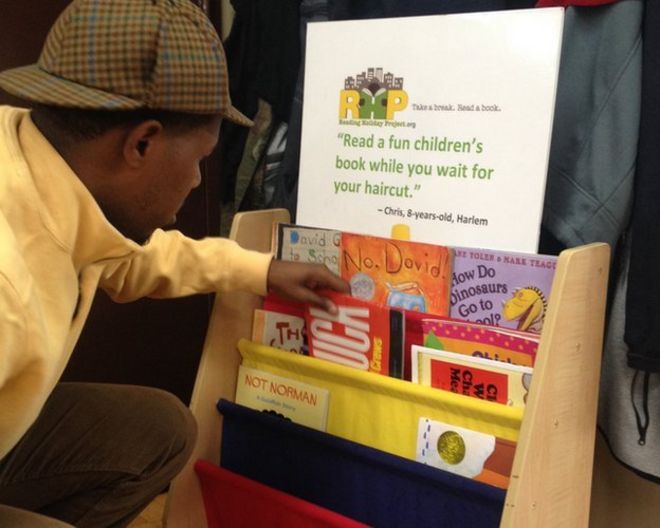
One former teacher is trying to encourage a love of reading in young black boys in Harlem by making books available at an essential place - the barbershop.
Denny Mo's Superstar Barbershop in Harlem is a busy place on a Saturday morning. Nearly every chair is filled as barbers work on clipping, cutting and blow-drying hair.
Alvin Irby greets owner Dennis Mitchell and strolls through the central aisle to an area near the back - but he's not here for a haircut.
Irby is a man on a mission, and one that has a formal name - Barbershop Books.
A former teacher, he wants African-American boys to read more and to read better.
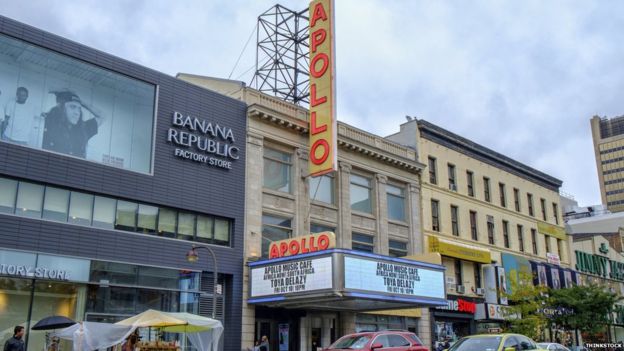
Irby says in New York City, only 22% of black children are proficient in reading. Boys' reading level is generally lower than girls. It's a bleak picture nationally as well. With Barbershop Books, he's attempting to make a dent in those statistics.
Denny Mo's has a small, colourful bookshelf in a corner of the shop. The shelf contains books popular with young children - Diary of a Wimpy Kid, The Gingerbread Man, and books about Lego action figures.
Irby has brought these shelves to six Harlem barbershops and is doing the rounds to check in on them. He restocks and tidies, making sure they remain a prominent position to catch the eye of children waiting for a hair cut.
And it works - the children who come in with their parents to Denny Mo's make a beeline for the shelf, picking books to read.
Irby has carefully curated these books to appeal to boys between four and eight, because this is an important time for learning how to read.
"Children who love reading will read anything," says Irby. "The challenge is that many young black boys don't have that passion for reading, so the books we expose them to are books that will capture their attention and that will engage them."
Irby is a 30-year-old African American from Little Rock, Arkansas. He says the idea for Barbershop Books came to him when he was getting his own hair cut one Saturday morning.
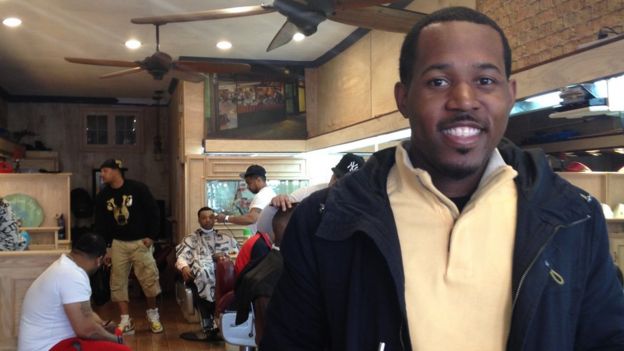
A student of his walked into the shop with his parent, and sat around waiting, bored and not doing much else.
"I thought to myself, this kid should be using his time to read," says Irby.
Irby is now working on funding to expand the project nationally, and building a network of barbershops across the country.
Barbershops, he says, are the perfect place for this project. "The barbershop is a cultural centre for black communities. They're places where lots of ideas are exchanged and where cultural learning happens."
Denny Mo agrees. "We have a have a captive audience," he says with a smile. "And I would rather them do this than nothing. We're all about improving minds here."
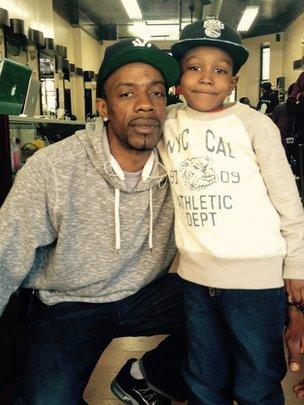
As if on cue, six year old Shawn Robertson Jr walks in and heads straight for the bookshelf. He picks out a No David book, and settles in on the couch. The character in the book - David - is always getting into trouble and being told "NO" by his mother. Within minutes Shawn is excitedly retelling David's adventures to anyone who will listen.
Irby says this particular series is popular with young children. "Boys can relate to someone telling them to stop doing something all the time," he says.
He draws a direct link between the education of young black children and the bigger picture of tensions and violent protests in cities like Baltimore and St Louis.
"Not being proficient in reading by [age nine] is linked to a higher likelihood of being a high school dropout, which is linked to a host of negative life outcomes, including low wages, incarceration, crime, and lost taxes," he says.
Poverty is still a problem, Irby says, but parental involvement can help mitigate some of its negative impact.
The five barbers in Harlem taking part in Barbershop Books are all clustered together, and this too, is intentional on Irby's part, to help boys associate barbershops and reading.
"It makes a more concentrated impact so boys and families are talking to each other about reading," he says.
The next shop Irby stops by is Harlem Masters.
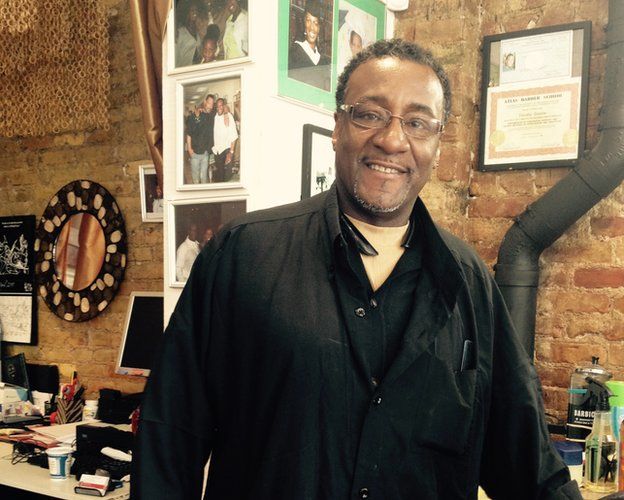
Paulette Brown is here with her eight-year-old grandson Zion, who heads straight for the colourful bookshelf when he enters.
"I think if they didn't have video games they would read more," she says of boys. "Girls would pick up a book and read it straightaway, so I think it's good that they can have this in a barbershop."
In determining which books to pick, Irby kept in mind not just age, but also culture, picking books with African American characters. It's not always easy.
"Incorporating culture is important but culture is a lot of different things, it's not just skin colour," he says, objecting to some of the ways books are pigeonholed for black children.
"Black boys want to go on an adventure too. That's not exclusive to white kids or anyone else."
Features & Analysis
ADVERTISEMENT FEATURE PRESENTED BY
Boundless Adventure
Journey on 6 road trips through Quebec



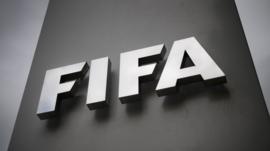
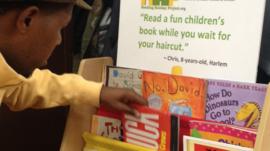



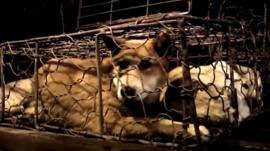
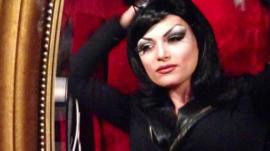

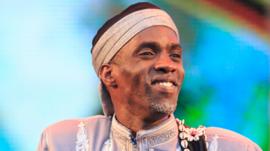
No comments:
Post a Comment
Please leave a comment-- or suggestions, particularly of topics and places you'd like to see covered